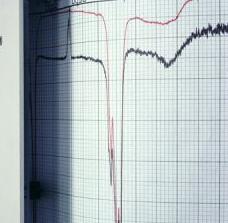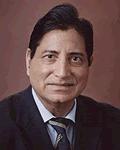In order not miss the moment of timely recourse, it is important to know the basic symptoms of heart disease, which include:
- sensations of pain and discomfort in the chest;
- chest pain, radiating under the left shoulder or arm;
- disruptions in heart rhythm.
When you have one of these symptoms, contact your doctor immediately.
You can get professional advice of the cardiologist on issues:
- diagnosis and treatment of coronary heart disease and other cardiac pathology;
- diagnosis and treatment of hypertension and hypertension;
- analysis of ultrasound study of the heart and blood vessels;
- electrocardiography (ECG);
- laboratory tests (blood chemistry).
Electrocardiography (ECG): what it is and for which you need?
Electrocardiogram, or ECG, is a method of investigation of the heart through a graphical record of its electrical potential. Cardiology so far relies on this method as one of the most informative.
Indications for ECG:
1. Availability in the life of the patient's risk factors:
- Smoking;
- Age 40 and older;
- Transferred serious infectious disease;
- Increased blood cholesterol levels;
- Hypertension;
- Pregnancy.
2. The deterioration of overall health in the presence of heart disease. In particular, the occurrence of dyspnea or arrhythmia - warning signs.
3. The presence of diseases, which can cause complications of the cardiovascular system.
4. In preparing for surgical intervention.
hide
 Cardiology examines all aspects of the functioning of the heart and blood vessels. The main objectives of cardiology - is a timely diagnosis and treatment of cardiovascular diseases, rehabilitation of cardiac patients, as well as the development of effective preventive measures.
Cardiology examines all aspects of the functioning of the heart and blood vessels. The main objectives of cardiology - is a timely diagnosis and treatment of cardiovascular diseases, rehabilitation of cardiac patients, as well as the development of effective preventive measures. 






